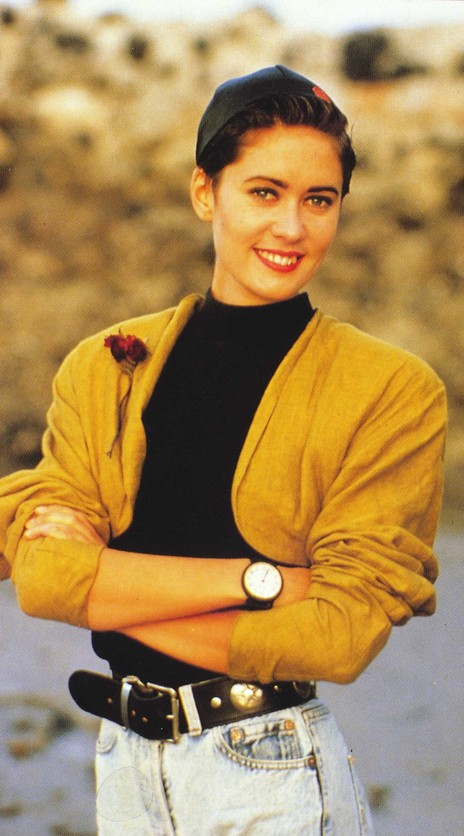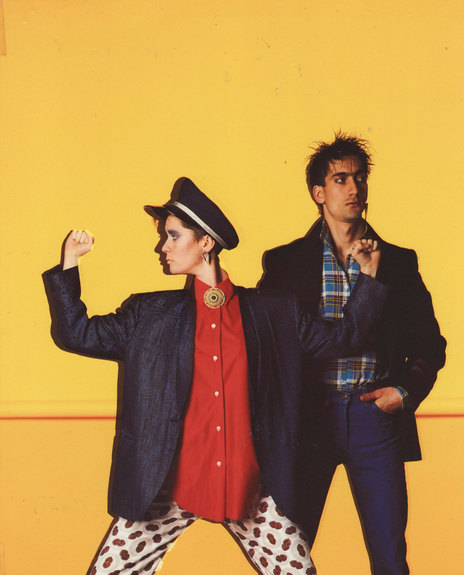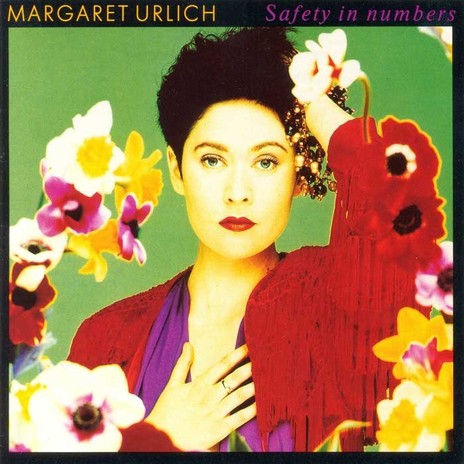I can’t say I ever really chased a career in music. It simply evolved from a talent that came very naturally to me. I was lucky to have been born into a large musical family, and my first experience of performing in front of an audience was at the age of six with my three older siblings, at our local shopping centre. Deep down, though, I never seriously thought I had a chance of making it as a professional musician.

Margaret Urlich, 1989
Although I loved to sing, I was a very shy person, so I was genuinely surprised to realise that there were people out there willing to pay to see me perform, as I was never groomed for success of that kind by my parents, and didn’t know anyone in my formative years who had achieved any measure of success in the music industry.
It wasn’t until my late teens when my cousin Peter started singing with Th’ Dudes, and later when my brother Pat started performing, that I ever really considered the possibility that I could do the same.
The year after I left school, I travelled around New Zealand for a year, picking fruit, etc. While I was away, my brother Pat, who had been the lead in all his high-school musicals, joined a band called Corners, which later evolved into Peking Man.

Margaret and Pat Urlich in the January/February 1986 Shake! magazine
When I returned from my travels, I went to a Corners gig at The Esplanade in Devonport and was blown away by the band, and in particular, by my brother’s performance. I remember thinking how good he was, and that if he could do it, then maybe I could do it, too – after all we had the same DNA. So suddenly the idea of a least getting up on stage didn’t seem so far-fetched after all.
When I was young there was not a lot of money for mod cons, so the old valve radio in the kitchen was our only exposure to popular music. Later, when I was about 10, we were given a record player by an aunty. The sound quality was not great, but I remember that it opened up a whole new world of music to me and my family.
Albums I remember from my childhood include Stevie Wonder’s Songs in the Key of Life, Cat Stevens’s Teaser and the Fire Cat, the original cast recording of Jesus Christ Superstar, and Buffy Sainte-Marie’s Moonshot. The first big musical influence of my own choosing was Joni Mitchell, whom I listened to in my mid- to late-teens. I loved Joni’s “heart on her sleeve” style of songwriting and the originality of her vocals. Nina Simone’s vocal tone and musicianship I also hugely admired. Later, Annie Lennox was someone I took great notice of. She projected a strong image, and had (and still has) a brilliant voice.
My first record company in New Zealand was CBS, who later became Sony Music. My friend Murray Thom was the managing director at the time, and under his leadership CBS was a great company to work with. Later, at the beginning of my solo career, when I was signed to Sony Australia, I found the male dominance of the music industry quite strange at times. It was a very blokey culture, and it took a while to get used to.

Safety in Numbers, 1989. Artwork by Polly Walker and Debbie Watson.
They certainly knew how to sell records, though, and I can’t honestly say that I ever felt any pressure initially to compromise the person or the artist that I was. They did their thing, and I did mine. It wasn’t until after triple-platinum sales of my first record, Safety in Numbers, that the A&R [Artist and Repertoire] department began, in my view, to offer a few odd suggestions as to how to make the next album a similar success. In those days the opinion was that if I could maybe sing a little more like Sheryl Crow, the second album might achieve a similar level of success as the first.
I don’t think it is so much about gender, with regard to the music industry; it is hard for everyone. It is more about how to value yourself, and how you see through the superficiality of the popular music machine. The friendship and support I have found from other female artists, though, has definitely been an advantage.
There have been many highlights of my career. Obviously good album sales and industry awards are wonderful. More recently, however, the involvement of my husband George, and my two children in my music, is by far the most rewarding aspect of my career thus far. Seeing the positive effect it has on my family adds a far deeper dimension.
The only real low points worth mentioning are all to do with the business side of the music industry. It takes a while to realise that for all the risk, effort, and personal stories we pour into our work, at the end of the day it is a product that may either fail or succeed, in commercial terms. I feel it is important, therefore, to feel proud of my music, irrespective of whether or not it is well received by others. Harder than it sounds, though.
I wish I had enjoyed the moment more. I guess I was more fixated on what I hadn’t achieved rather than what I had.
The whole process of recording, promoting, and touring an album is extremely intense. The fact that my albums went on to be commercially successful has been a huge achievement, particularly because there are so many excellent recordings that for one reason or another get overlooked.
Record companies are currently less likely to take a punt on original artists, which puts female singer-songwriters at a disadvantage. The Idol phenomenon has influenced the audience’s expectations in a negative way, making people less open to original voices and songs. Up-and-coming female musicians should embrace the things that make them different, though. Also, just get out there and play music. There is no better learning environment than a live gig.
I still really enjoy singing and feel that my voice is now better than ever. I’m not desperate for commercial success however, and wouldn’t compromise my family life to achieve it again. My husband and I also record other artists, which I really enjoy. I feel I can bring a lot to the table because I am a recording artist myself, and thus I can empathise in a way that others may not be able to. I feel I have another album in me, though, and am getting closer and closer to making it.
--
This first appeared in Kiwi Rock Chicks, Pop Stars & Trailblazers, edited by Ian Chapman (HarperCollins, Auckland, 2010), and is republished with permission.
--
Read more: AudioCulture’s Margaret Urlich profile, by Murray Cammick